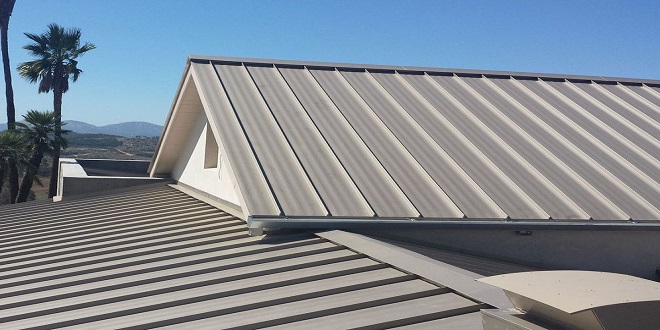Choosing suitable roofing materials for your climate is essential to protecting your home from the elements. The type of material you choose will also affect your energy efficiency and your home’s curb appeal.
Your roofing materials should complement the style of your building. For example, if you have an ancient-style structure, choose a tile roofing sheet that matches the design. More so than you would realize, choosing the proper roofing materials for your house is crucial. It would be best if you considered the climate where you reside, the upkeep of your roof against the weather, and the defense of your home against any potential natural calamities. In colder climates, an accumulation of snow and ice on your roof can cause damage. In hot areas, you’ll want to ensure your roof isn’t absorbing all the heat and sending it inside. Particular roofing materials are advantageous for different situations for these and other reasons. If you make the appropriate choice, you won’t have to deal with unexpected maintenance or roof damage.
Slate Tile
Slate tile is a natural, non-porous roofing material with a classic beauty. Slate’s mineral composition, including volcanic dust and clay, is vital to its appeal.
It comes in various colors and can be patterned, textured, or multicolored. It’s also durable, resisting insects, fires, rain, snow, wind, and hail.
Unlike asphalt shingles, slate doesn’t need to be replaced as often. This reduces waste and helps the environment.
This also allows you to keep the roof’s temperature stable year-round, helping to prevent condensation and mildew.
Ensure you’re working out the pitch correctly when installing your slate roof. This is a vital step in ensuring your new roof lasts for years.
Once you’ve worked out your pitch, cut the slate tiles accordingly using a wet saw and a scoring line. Ensure you follow your manufacturer’s guidelines when cutting to ensure a smooth, uniform finish. For your requirements, you might discover a reputable manufacturer like Florida roofing that provides excellent proposals.
Asphalt Shingles
One of the most important factors to consider when choosing the suitable roofing material for your home is your local climate. For example, if your area gets a lot of rain, choose a material that can withstand the rain and prevent leaks.
Similarly, if you live in a humid or hot climate like Florida, choose a material that will help deflect heat and keep your home cool. This will lower your energy bills and help you save on heating costs in the long run.
Metal
Choosing suitable materials is essential if you’re looking for a new roof. This will ensure your home’s roof is durable and can withstand the weather in your area.
Metal roofing is one of the most popular choices for homeowners. It’s easy to install and can reflect radiant heat, which helps reduce summer cooling costs.
There are several different types of metal to choose from, depending on your budget and requirements. Here are five basic options:
Steel: This is the most common type of roof metal and is very sturdy. It can be coated with various coatings to make it look more natural.
Aluminum: This is a cheaper alternative to steel and is more lightweight, but it can be susceptible to damage from rusting.
Stainless steel is another option, which can be a good choice for homeowners who want corrosion resistance. However, it can be expensive to install.
Clay Tile
Choosing a suitable roofing material for your climate is essential to replace your roof. The best option will depend on factors such as weather, humidity, and how much maintenance you want to have to do.
Clay tile is a popular roof choice because of its longevity and durability. It is fire-resistant and can last for over a century with proper installation.
In addition, clay tile is a good roofing choice for hot and dry climates, as it helps reflect heat from the sun. It also is a good choice for homeowners who want to save on energy costs.
Unlike concrete tiles, clay tiles can be manufactured in various colors and profiles to complement any architectural style. They’re also durable and long-lasting, making them an excellent choice for residential and commercial properties.
 BESTCITYTRIPS
BESTCITYTRIPS




